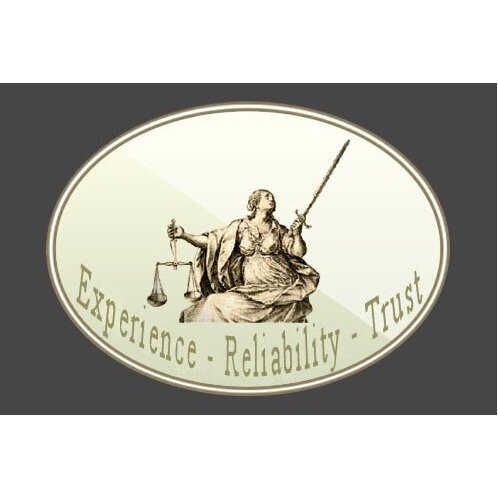Best Energy Regulatory Law Lawyers in Pattaya
Share your needs with us, get contacted by law firms.
Free. Takes 2 min.
List of the best lawyers in Pattaya, Thailand
About Energy Regulatory Law in Pattaya, Thailand
Energy Regulatory Law in Pattaya falls under the broader legal framework established by Thailand’s central government to govern energy production, distribution, and consumption. This body of law manages the permitting, operation, and oversight of energy projects, including electricity, renewable energy, natural gas, and other related sectors. In Pattaya, both local regulations and national energy policies shape how businesses and individuals deploy, sell, or consume power. The Energy Regulatory Commission of Thailand (ERC) is the primary agency responsible for the regulation and supervision of the country’s energy industry, ensuring compliance with national standards and consumer protection mandates. There are also local considerations in Pattaya, especially since it is a fast-growing urban area with increasing energy demands and a focus on sustainable development.
Why You May Need a Lawyer
Legal support in Energy Regulatory Law may be crucial for a variety of reasons in Pattaya. Common scenarios where individuals or businesses seek legal assistance include applying for energy licenses or permits, negotiating contracts for power purchase or distribution, resolving disputes with utility providers, navigating regulatory compliance, and addressing environmental impact requirements. A lawyer experienced in this area can help interpret complex regulations, advocate on your behalf before regulatory authorities, provide guidance on renewable energy investments, and ensure your projects meet all safety and environmental standards. If you are involved in any phase of an energy-related business or are a property owner thinking about installing renewable energy systems, legal advice can help safeguard your interests and ensure full compliance.
Local Laws Overview
Pattaya energy regulations apply within the national framework governed by the Energy Industry Act of 2007 and the authorities of the ERC. Local standards may address issues like grid connection procedures, specific requirements for solar rooftop installations, waste-to-energy projects, and environmental protection measures. The City of Pattaya may enact ordinances or policies to promote sustainable energy usage, influence licensing timelines, and encourage green energy. Business operators and residential developers must pay close attention to zoning laws, building permits, and energy efficiency codes. Additionally, there are consumer protection rules that impact how energy companies operate, bill customers, and handle outages or service disputes.
Frequently Asked Questions
What is the main regulatory body for energy in Pattaya?
The Energy Regulatory Commission of Thailand (ERC) is responsible for regulating most energy activities in Pattaya, including licensing, consumer protection, and dispute resolution.
Can foreigners invest in energy businesses in Pattaya?
Foreigners can invest in energy projects, but certain restrictions and licensing requirements may apply. Legal consultation is recommended to understand the latest rules and conditions.
Do I need a permit to install a solar power system on my property?
Yes, installing solar panels usually requires permits and must meet technical standards set by both local Pattaya authorities and national energy regulations.
Are there incentives for using renewable energy in Pattaya?
Thailand has several incentive schemes for renewable energy investments, but availability changes over time. You should check with the ERC and local agencies for current programs.
How are energy tariffs and rates regulated?
Electricity and gas tariffs are regulated by the ERC, which reviews rates to ensure fairness and transparency for consumers and providers.
What should I do if I have a dispute with an energy provider?
Consumers can file complaints with the ERC or local offices of the Provincial Electricity Authority. Legal representation can help mediate or escalate disputes when necessary.
Are there environmental regulations for energy projects?
Yes, energy projects must comply with environmental laws and may require environmental impact assessments, especially for larger operations or those near protected areas.
What are “Power Purchase Agreements” and do I need one?
A Power Purchase Agreement (PPA) is a contract to buy or sell energy at agreed terms. PPAs are critical for commercial energy producers and may require legal review.
Can residential buildings generate and sell electricity back to the grid?
Thailand’s policies allow limited grid feed-in from qualified small-scale producers, but specific rules and registration processes must be followed in Pattaya.
What happens if I operate an unlicensed energy business?
Operating without the necessary licenses or permits can lead to fines, legal action, and shutdown orders. It is important to secure all approvals before commencing operations.
Additional Resources
For those in need of legal advice or further information, consider these resources:
- Energy Regulatory Commission (ERC) - Main regulatory authority overseeing energy matters
- Provincial Electricity Authority (PEA) - Local utility responsible for electricity distribution in Pattaya
- Department of Alternative Energy Development and Efficiency - Focused on renewable energy and efficiency programs
- Ministry of Energy - Sets national policy and manages sector-wide initiatives
- Pattaya City Hall - Local government office for construction and zoning permits
- Thai Bar Association - Directory of qualified lawyers with expertise in energy law
Next Steps
If you need legal assistance in Energy Regulatory Law in Pattaya, start by clearly defining your issue or project details. Gather all relevant documents, including contracts, permits, correspondence with authorities, and property deeds. Contact a qualified lawyer who specializes in energy or administrative law within Thailand. Consider scheduling a consultation to discuss your case and evaluate your options. If you are a business, it may also be helpful to consult with technical experts to ensure your energy project meets safety and engineering standards. Acting swiftly and compliantly can help minimize risks and ensure your rights are protected throughout the process.
Lawzana helps you find the best lawyers and law firms in Pattaya through a curated and pre-screened list of qualified legal professionals. Our platform offers rankings and detailed profiles of attorneys and law firms, allowing you to compare based on practice areas, including Energy Regulatory Law, experience, and client feedback.
Each profile includes a description of the firm's areas of practice, client reviews, team members and partners, year of establishment, spoken languages, office locations, contact information, social media presence, and any published articles or resources. Most firms on our platform speak English and are experienced in both local and international legal matters.
Get a quote from top-rated law firms in Pattaya, Thailand — quickly, securely, and without unnecessary hassle.
Disclaimer:
The information provided on this page is for general informational purposes only and does not constitute legal advice. While we strive to ensure the accuracy and relevance of the content, legal information may change over time, and interpretations of the law can vary. You should always consult with a qualified legal professional for advice specific to your situation.
We disclaim all liability for actions taken or not taken based on the content of this page. If you believe any information is incorrect or outdated, please contact us, and we will review and update it where appropriate.















